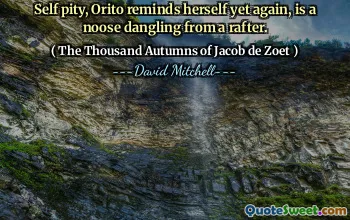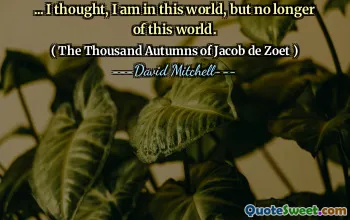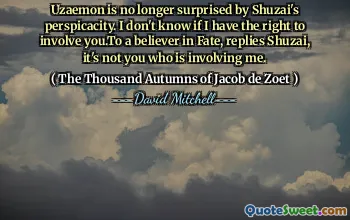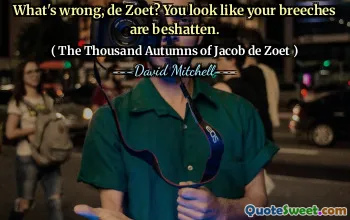
Nothing more costly than item that has no price.
In David Mitchell's novel, "The Thousand Autumns of Jacob de Zoet," a poignant idea emerges: items that hold great value often lack a physical price tag. This concept highlights the hidden worth of things that are not easily quantified in monetary terms. Such items could represent emotional significance, personal memories, or cultural heritage, emphasizing how the most precious aspects of life are often beyond financial reach. The quote suggests that true value transcends mere cost and challenges our perception of worth in a materialistic society. It serves as a reminder to appreciate the intangible treasures we hold dear, which can be far more fulfilling than any priced commodity. Through this narrative, Mitchell encourages readers to explore the deeper meanings behind what they cherish.
In David Mitchell's novel, "The Thousand Autumns of Jacob de Zoet," a poignant idea emerges: items that hold great value often lack a physical price tag. This concept highlights the hidden worth of things that are not easily quantified in monetary terms. Such items could represent emotional significance, personal memories, or cultural heritage, emphasizing how the most precious aspects of life are often beyond financial reach.
The quote suggests that true value transcends mere cost and challenges our perception of worth in a materialistic society. It serves as a reminder to appreciate the intangible treasures we hold dear, which can be far more fulfilling than any priced commodity. Through this narrative, Mitchell encourages readers to explore the deeper meanings behind what they cherish.











